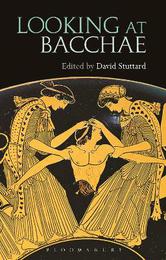
|
Looking at Bacchae
Hardback
Main Details
Description
Bacchae is one of the most troubling yet intriguing of Greek tragedies. Written during Euripides' self-imposed exile in Macedonia, it tells of the brutal murder and dismemberment of Pentheus by his mother and aunts who, driven temporarily insane, have joined the Bacchae (devotees of the god Dionysus, or Bacchus). The startling plot, driven by Dionysus' desire to punish his family for refusing to accept his divinity, and culminating in the excruciating pathos of a mother's realization that she has killed her son, has held audiences transfixed since its original performance (when it won first prize). It is one of the most performed and studied plays in the Greek tragic corpus, with a strong history of reception down to the present day. This collection of essays by eminent academics gathered from across the globe explores the themes, staging and reception of the play, with essays on the characters Dionysus and Pentheus, the role of the chorus of Bacchae, key themes such as revenge, women and religion, and the historical and literary contexts of the play. The essays are accompanied by David Stuttard's English translation which is performer-friendly, accessible and closely accurate to the original.
Author Biography
David Stuttard has directed his own translations and adaptations of Greek drama including Bacchae throughout the UK and in classical theatres in Turkey and Albania. He is the founder of the theatre company Actors of Dionysus and has edited Looking at Lysistrata (2010) and Looking at Medea (2014) for Bloomsbury. His other publications include Parthenon: Power and Politics on the Acropolis (2013) and A History of Ancient Greece in Fifty Lives (2014).
ReviewsThe essays ... [in this collection are] written in an accessible style that makes the volume useful and stimulating for a wide range of readers. * Classics For All Reviews * This collection of 12 essays on Euripides' Bacchae by internationally recognized scholars and edited by a successful theater director attests to the timeless salience of this play. ... Looking at Bacchae provides a compelling model for bringing thoughtful analysis and performance of Greek tragedy to a broader public. ... In sum, the volume is a welcome contribution, bringing the highest level of academic scholarship to bear on this important tragedy in the interest of a broader audience for whom it may continue to hold salience. For this, Stuttard and the contributors should be applauded. * Bryn Mawr Classical Review *
|